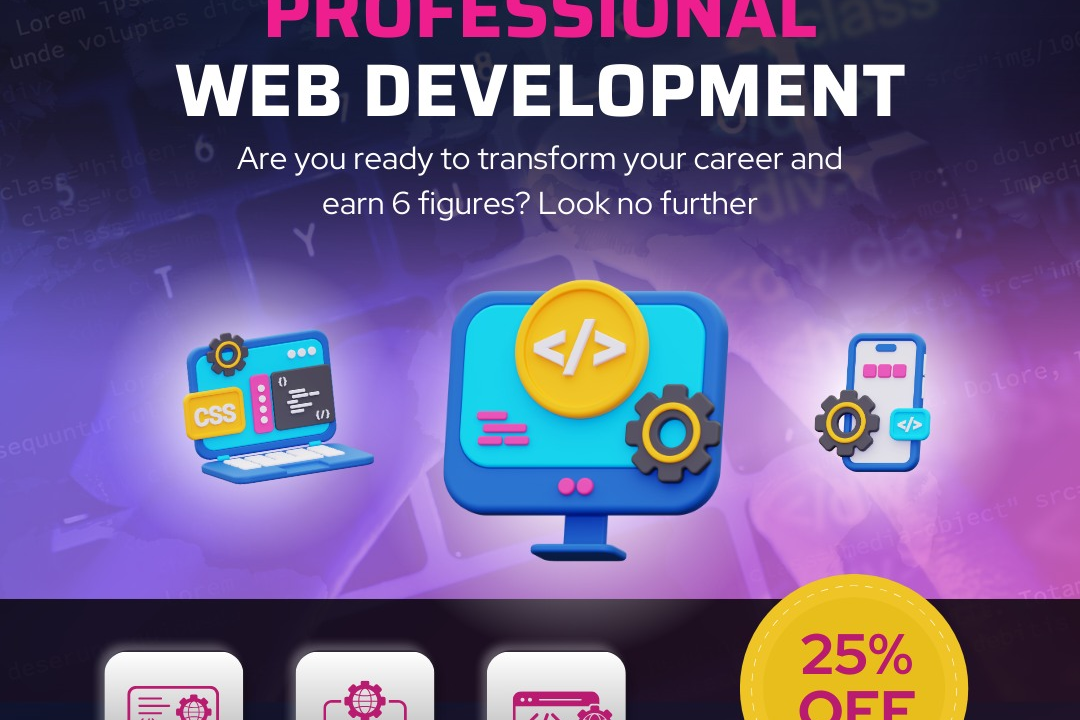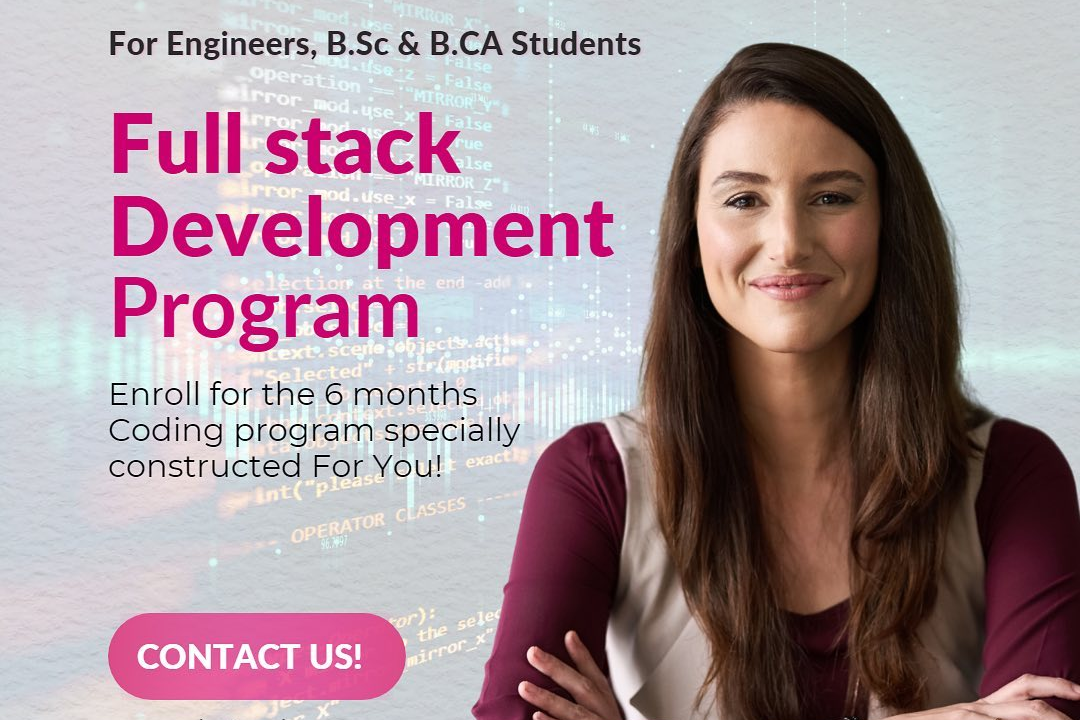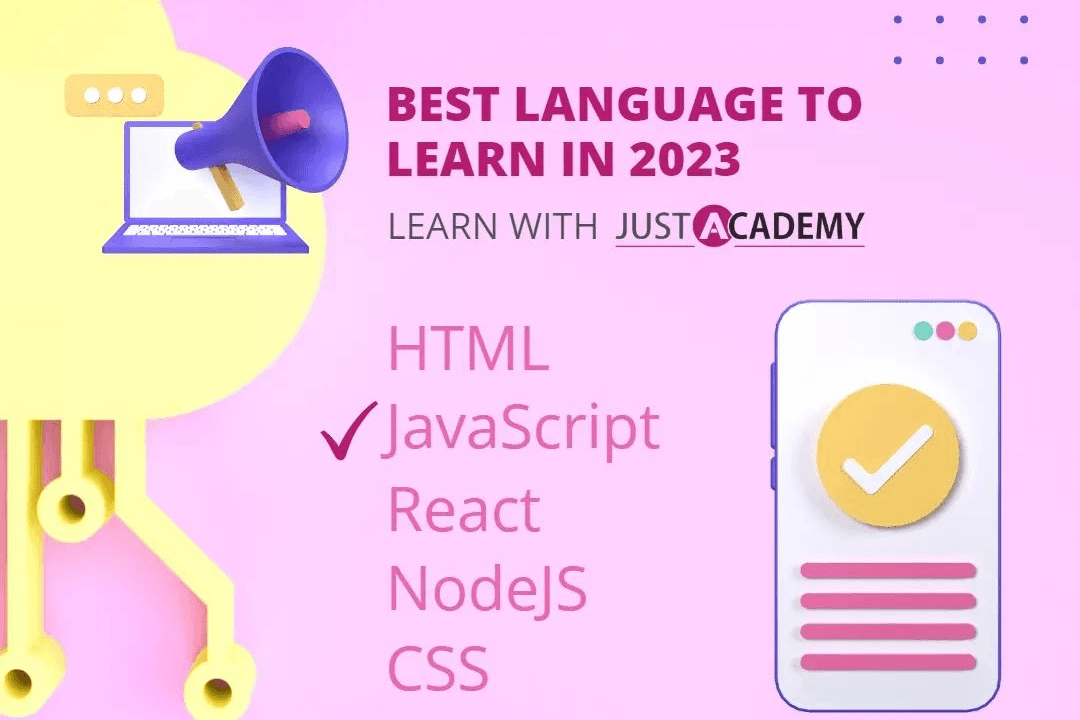Laravel Interview Question And Answer For Experiencee
Essential Laravel Interview Questions and Answers for Experienced Developers
Laravel Interview Question And Answer For Experiencee
Laravel interview questions and answers are essential for experienced developers as they help assess a candidate's proficiency in one of the most popular PHP frameworks. These interviews typically cover key topics such as routing, middleware, Eloquent ORM, and dependency injection, which are crucial for building robust web applications. By preparing for these questions, candidates can demonstrate their understanding of Laravel’s features and best practices, showcasing their ability to create efficient, maintainable, and scalable applications. Engaging with these topics not only boosts a developer’s confidence but also enhances their problem-solving skills, ultimately increasing their value in the job market and ensuring they meet the demands of modern web development.
To Download Our Brochure: https://www.justacademy.co/download-brochure-for-free
Message us for more information: +91 9987184296
Laravel Interview Questions and Answers for Experienced Developers
1 - What is Laravel?
Laravel is a PHP framework designed for building web applications following the MVC (Model View Controller) architectural pattern. It offers a clean and elegant syntax, rich features, and tools for routing, session management, and authentication.
2) What are Service Providers in Laravel?
Service Providers are the central place to configure and bootstrap applications. They are responsible for binding classes into the service container and registering services with the application.
3) Explain Middleware in Laravel.
Middleware in Laravel acts as a bridge between a request and a response. It allows filtering HTTP requests entering your application and can perform tasks such as authentication, logging, and even modifying incoming requests.
4) What is the purpose of Routes in Laravel?
Routes in Laravel define the URL patterns that the application responds to. They map URL requests to specific controllers or closures, making it easy to manage and define application endpoints.
5) How does Eloquent ORM work in Laravel?
Eloquent ORM is Laravel’s built in Object Relational Mapping tool, allowing developers to interact with the database using PHP syntax instead of SQL queries. It provides an ActiveRecord implementation to handle data models and their relationships.
6) What are Laravel Facades?
Facades in Laravel provide a static interface to classes that are available in the service container, allowing easy access to various functionalities without needing to instantiate the class directly.
7) Explain the concept of Dependency Injection in Laravel.
Dependency Injection is a design pattern used in Laravel to achieve Inversion of Control, where dependencies are provided to a class rather than the class creating them itself. This leads to more modular and testable code.
8) What is a seeder in Laravel?
Seeders in Laravel allow you to populate your database with sample data for testing or initial setup. You can create seeders that define specific data to be inserted into any table in your database.
9) How do you handle form validation in Laravel?
Laravel provides a robust validation mechanism through requests and the Validator facade. You can define validation rules in controllers or Form Request classes, allowing seamless validation of incoming data.
10) What is Laravel Mix?
Laravel Mix is a build tool that provides an expressive API for defining webpack build steps for assets such as CSS and JavaScript. It simplifies the process of compiling and optimizing frontend assets.
11 - Explain the difference between `Session` and `Cache` in Laravel.
Sessions are used to store user specific data temporarily, while Cache is designed for storing data that can be shared across users, improving performance by reducing database calls.
12) What is the role of the `.env` file in Laravel?
The `.env` file in Laravel is used to store environment configuration variables such as database credentials and API keys. It allows developers to separate configuration from code, facilitating deployment across different environments.
13) How can you implement authentication in Laravel?
Laravel includes built in authentication scaffolding, which can be set up using Artisan commands. It provides functionality for user registration, login, password reset, and middleware protection for designated routes.
14) What are migrations in Laravel?
Migrations are a version control system for your database that allows you to define the structure of your database tables using PHP syntax. They help keep database schema synchronized across different development environments.
15) Explain how to create custom Artisan commands in Laravel.
Custom Artisan commands can be created by generating a new command class using the `make:command` Artisan command. In the generated class, you define your command logic in the `handle` method, allowing you to create tasks that can be executed from the command line.
Additional Laravel Interview Questions and Answers for Experienced Developers
16) What is the purpose of the `route` helper function in Laravel?
The `route` helper function generates a URL for a named route. It helps in creating URL links that are more maintainable and less prone to errors, as changes in the routing definitions do not affect the links.
17) How do you handle database transactions in Laravel?
Laravel provides a simple way to manage database transactions using the `DB::beginTransaction()`, `DB::commit()`, and `DB::rollBack()` methods. This ensures that multiple database operations are treated as a single unit — either all are executed, or none are.
18) Explain the use of the `dotenv` library in Laravel.
The `dotenv` library enables Laravel to read environment variables from the `.env` file. It helps manage configuration settings based on the environment (development, staging, production) without hardcoding sensitive information in the codebase.
19) What is the purpose of `config` in Laravel?
The `config` function is used to access the configuration values defined in the application’s config files. It allows developers to retrieve application settings conveniently and helps manage application behavior across different environments.
20) Describe the process of creating RESTful APIs in Laravel.
Creating RESTful APIs in Laravel involves defining routes that correspond to HTTP methods (GET, POST, PUT, DELETE) and creating resource controllers to handle the requests. Laravel’s built in resource routing allows for clean and organized API endpoint management.
21 - How do you implement file storage in Laravel?
Laravel provides a filesystem abstraction layer with the `Storage` facade. You can easily manage file storage with various drivers (local, Amazon S3, etc.) and perform operations like uploading, downloading, and deleting files.
22) What is the significance of the `$fillable` property in Eloquent models?
The `$fillable` property in Eloquent models defines which attributes are mass assignable. This acts as a safeguard against mass assignment vulnerabilities by specifying the fields that can be set through user input.
23) How can you implement localization in Laravel?
Localization in Laravel can be achieved using language files stored in the `resources/lang` directory. You can define translations for various languages and access them using the `trans` or `__` helper function in your views and controllers.
24) Explain the purpose of the `AppServiceProvider`.
The `AppServiceProvider` is one of the default service providers included in a Laravel application. It is often used to register services and bind classes into the service container, making it a central place for application configuration.
25) What is the use of the `Soft Deletes` feature in Eloquent?
Soft Deletes in Eloquent allows you to keep records in the database but mark them as deleted instead of physically removing them. This is done using a `deleted_at` timestamp column, enabling data recovery if needed later.
26) How do you set up and use event broadcasting in Laravel?
Event broadcasting in Laravel can be set up using Artisan commands to create event classes and corresponding listeners. You can broadcast events over a WebSocket connection, allowing real time updates in your application.
27) What are Form Requests in Laravel, and how do they work?
Form Requests are custom request classes that encapsulate validation logic. By creating a Form Request class, you can centralize your validation rules and authorization logic, making controllers cleaner and more focused.
28) How can you utilize Route Model Binding in Laravel?
Route Model Binding allows you to automatically inject model instances into route closures or controller methods based on the ID passed in the URL. This streamlines the process of retrieving models and reduces the need for manual queries.
29) What role does the `users` table play in Laravel’s authentication system?
The `users` table typically stores user credentials and details required for the authentication process. Laravel’s built in authentication system uses this table to verify user identities, manage sessions, and perform user related operations.
30) Explain the `broadcast` method in Laravel.
The `broadcast` method in Laravel is used to send real time events to clients via WebSockets. It facilitates building interactive applications by allowing server side events to be pushed to the front end automatically.
31 - How does Laravel implement caching?
Laravel provides a unified API for multiple caching systems, allowing you to cache results using simple methods. Caching in Laravel can be done using various drivers like file, database, and Memcached, improving application performance and reducing load times.
32) What are Notifications in Laravel?
Notifications in Laravel provide a simple and fluent way to send alerts to users through various channels like email, SMS, or database. You can create notification classes that encapsulate notification details and bus them to users.
33) How do you handle error and exception handling in Laravel?
Laravel provides robust error and exception handling out of the box, allowing you to easily customize error responses, log errors, and use custom exception handler classes to manage errors throughout the application lifecycle.
34) What are Artisan commands, and how do you create a custom command?
Artisan commands are command line interfaces provided by Laravel for interacting with the application. You can create custom commands using the `php artisan make:command CommandName` command, then implement your logic in the generated class.
35) How can you optimize performance in a Laravel application?
Performance optimization in Laravel can involve several strategies, including utilizing caching for database queries, optimizing asset handling with Laravel Mix, using eager loading to reduce N+1 queries, and optimizing your database indexes.
Course Overview
The “Laravel Interview Questions and Answers for Experienced Developers” course is designed to equip participants with a comprehensive understanding of advanced Laravel concepts essential for technical interviews. This course covers critical topics such as Eloquent ORM, database transactions, authentication, event broadcasting, and API creation, along with practical, real-world problem-solving techniques. Through a curated list of interview questions and detailed answers, participants will enhance their knowledge, refine their problem-solving abilities, and gain the confidence needed to excel in interviews for Laravel development positions. Whether aiming to switch jobs or advance in their current role, learners will find this course invaluable in preparing them for success in the competitive tech landscape.
Course Description
The “Laravel Interview Questions and Answers for Experienced Developers” course provides an in-depth exploration of advanced topics essential for those looking to excel in Laravel-based job interviews. This course focuses on key areas such as Eloquent ORM, middleware, service providers, dependency injection, and API development, presenting a comprehensive list of interview questions paired with detailed answers and practical examples. Participants will engage in real-time project scenarios to solidify their understanding and application of complex Laravel concepts. By the end of this course, learners will be equipped with the critical skills and confidence needed to tackle challenging interview questions and advance their careers in web development.
Key Features
1 - Comprehensive Tool Coverage: Provides hands-on training with a range of industry-standard testing tools, including Selenium, JIRA, LoadRunner, and TestRail.
2) Practical Exercises: Features real-world exercises and case studies to apply tools in various testing scenarios.
3) Interactive Learning: Includes interactive sessions with industry experts for personalized feedback and guidance.
4) Detailed Tutorials: Offers extensive tutorials and documentation on tool functionalities and best practices.
5) Advanced Techniques: Covers both fundamental and advanced techniques for using testing tools effectively.
6) Data Visualization: Integrates tools for visualizing test metrics and results, enhancing data interpretation and decision-making.
7) Tool Integration: Teaches how to integrate testing tools into the software development lifecycle for streamlined workflows.
8) Project-Based Learning: Focuses on project-based learning to build practical skills and create a portfolio of completed tasks.
9) Career Support: Provides resources and support for applying learned skills to real-world job scenarios, including resume building and interview preparation.
10) Up-to-Date Content: Ensures that course materials reflect the latest industry standards and tool updates.
Benefits of taking our course
Functional Tools
1 - Laravel Framework: The primary tool used in the course is the Laravel framework itself. Laravel is an open source PHP framework designed for web application development following the model view controller (MVC) architectural pattern. It provides a seamless experience for developers with its elegant syntax and robust features such as routing, authentication, and session management. By working extensively with Laravel, students gain hands on experience in developing real world applications, allowing them to understand how to leverage its capabilities during interviews effectively.
2) Composer: Composer is a dependency management tool for PHP that is essential for managing libraries and packages within Laravel projects. In the course, students will learn how to install and manage dependencies using Composer, ensuring that their applications are efficient and organized. Understanding Composer is crucial for modern PHP development, especially when collaborating on projects or integrating external libraries, which often occurs in an interview setting.
3) MySQL: As a widely used relational database management system, MySQL plays a significant role in Laravel development. The course incorporates MySQL for handling database operations such as data retrieval, storage, and manipulation. Students will learn to interact with databases using Laravel's Eloquent ORM, which simplifies complex queries with an expressive syntax. Familiarity with MySQL and database concepts is essential for developers, as questions related to data management frequently arise during technical interviews.
4) Postman: Postman is a powerful tool for testing APIs, and it is integrated into the course for exploring and interacting with Laravel’s built in API capabilities. Students will learn how to send HTTP requests to their Laravel applications, inspect responses, and utilize Postman for creating collections of tests. Mastery of API testing demonstrates a developer's ability to build and maintain API driven applications, which is a key area of focus in many job interviews today.
5) Git & GitHub: Version control is a fundamental aspect of modern software development, and Git is the most popular version control system. The course emphasizes the importance of Git for tracking changes and collaborating with other developers. Students will learn how to use Git commands and platforms like GitHub for code hosting, issue tracking, and collaborative development. Understanding version control is crucial for conveying teamwork and code management skills in interviews.
6) Docker: As a containerization tool, Docker simplifies the deployment and management of applications within isolated environments. The course introduces students to using Docker for setting up development environments and ensuring consistency across different stages of the application lifecycle. Familiarity with Docker technologies enhances a developer's ability to create scalable applications, an essential skill often highlighted in technical interviews, where deployment strategies may be discussed.
By engaging with these tools throughout the course, students will not only prepare to answer common interview questions with confidence but also gain a comprehensive understanding of the technologies that drive modern web development. This practical experience equips them with the skills necessary to succeed in competitive job markets.
7) Laravel Blade: Blade is Laravel's powerful templating engine, allowing developers to create dynamic web pages with clean and expressive syntax. This course will focus on Blade’s features, such as template inheritance, control structures, and custom directives. Mastering Blade is essential for building robust front end applications within Laravel, and understanding its capabilities can be a valuable asset in interviews, particularly for roles focused on full stack development.
8) RESTful API Principles: Knowledge of RESTful API design is integral for web development, and this course emphasizes building APIs using Laravel's routing and controller functionalities. Students will learn the fundamentals of RESTful architecture, including how to structure requests and responses, handle authentication, and manage state. Being able to articulate this knowledge during interviews helps candidates showcase their understanding of API development and architectural best practices.
9) Frontend Frameworks (Vue.js or React): Many modern applications are built with a combination of back end frameworks like Laravel and front end frameworks such as Vue.js or React. The course includes an introduction to one of these popular JavaScript frameworks, allowing students to experience the integration of front end technologies with Laravel. Exploring this aspect helps in interviews where full stack development or knowledge of modern front end practices is required.
10) Middleware: Middleware in Laravel serves as a bridge between requests and responses, allowing developers to filter HTTP requests entering their application. The course investigates how to create and apply custom middleware to manage authentication, logging, and other pre processing functions. Understanding middleware concepts is vital for discussing application security and performance enhancements during interviews.
11 - Testing with PHPUnit: Automated testing is an essential practice in software development, and this course covers writing tests for Laravel applications using PHPUnit. Students will understand the different types of tests, such as unit tests and feature tests, and learn how to effectively write and run these tests. Knowledge of testing methodologies will empower candidates to demonstrate their commitment to quality code standards in interviews.
12) Command Line Interface (CLI) and Artisan Commands: Laravel comes with a built in command line interface known as Artisan, which streamlines various development tasks. In this course, students will learn to utilize Artisan commands for performing database migrations, running tests, and generating boilerplate code. Proficiency with CLI tools demonstrates a developer’s efficiency and capability, which is often assessed during technical interviews.
13) Database Migrations and Seeders: The course will cover how to create and manage database migrations and seeders using Laravel’s built in options. This practice prepares students to version control their database schema and populate their databases with test data easily. Knowing how to work with migrations is significant during interviews because it showcases understanding of database versioning and continuous integration practices.
14) Queues and Task Scheduling: Laravel provides powerful queue and task scheduling features for optimizing tasks that are resource intensive or time consuming. The course will familiarize students with implementing the queue system and creating scheduled tasks using the Laravel scheduler. Knowledge of these components enhances the capability to scale applications effectively, a point often discussed in interviews focused on performance optimization.
15) Security Best Practices: Security is a top priority in web development, and this course addresses common vulnerabilities, such as SQL injection and cross site scripting (XSS), along with best practices for securing Laravel applications. By understanding security measures, students will be better prepared to discuss how they plan to protect applications during job interviews, addressing concerns that hiring managers may have regarding application safety.
By mastering these additional skills and tools, students will deepen their knowledge of Laravel development and be well equipped to tackle complex technical challenges, making them standout candidates in interviews. This comprehensive training will not only enhance their confidence but also demonstrate their commitment to continuous learning and professional excellence.
Browse our course links : https://www.justacademy.co/all-courses
To Join our FREE DEMO Session:
This information is sourced from JustAcademy
Contact Info:
Roshan Chaturvedi
Message us on Whatsapp:
Email id: info@justacademy.co












